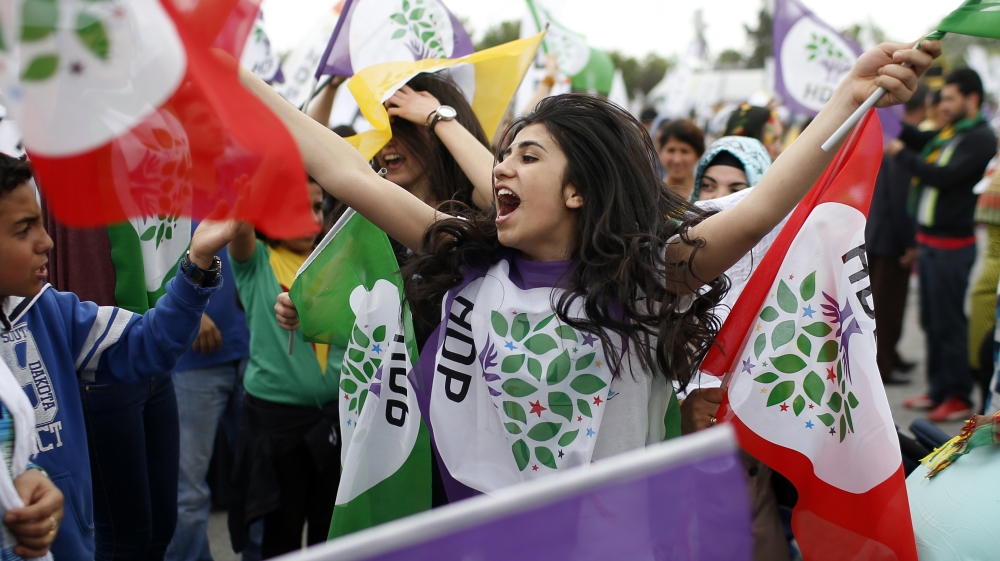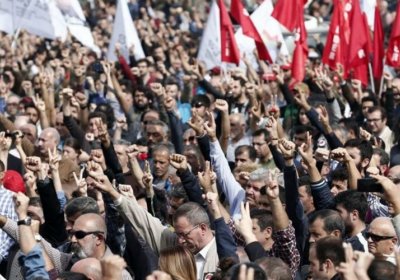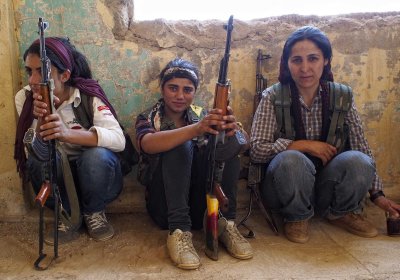Turkish trade unions began a two-day general strike on October 12 in protest at the bombings two days earlier at a peace march in Ankara peace march that killed more than 125 people, Morning Star online reported.
Turkey
Russia followed the lead of Western powers on September 30 and began direct military intervention in Syria – using the same form (air strikes) and the same declared enemy, the Islamic State of Iraq and Syria.
Russia's campaign, aimed to shore up the beleaguered regime of Syrian dictator Bashar Assad, will also target the al Qaeda-affiliated Nusra Front and other armed groups fighting the dictatorship.
Russia's entry into the fray has dramatically heightened tensions between Russia and the West and further complicated the already confused, multi-sided conflict in Syria.
The Turkish right wing takes winning elections seriously. The ruling Justice and Development Party (AKP) of President Recep Tayyip Erdoğan is so serious about achieving the result it wants in parliamentary elections on November 1, it is pushing the country to civil war.
 HDP rally ahead of the June 7 election.
The following statement was issued by the foreign affairs commission of the Peoples Democratic Party (HDP) on September 10.
HDP rally ahead of the June 7 election.
The following statement was issued by the foreign affairs commission of the Peoples Democratic Party (HDP) on September 10.
Sometimes the fate of a child is written 100 years before they are born. Some will view this as a reductionist approach or fatalistic, but here we are not talking of a divine fate, we are talking of historical forces, politics, power, hegemony, economic exploitation and colonialism.
Australian Prime Minister Tony Abbott announced on September 9 a novel approach to stemming the flow of refugees from Syria: bombing the country.
He also announced plans to accept a further 12,000 Syrian refugees on top of his government's miserly quota, but was quick to dispel any hopes that Australia might be abandoning its status as the Western world's leading abuser of refugees. Abbott told ABC Radio National on September 10 that Syrian refugees being held in the Australian-run concentration camps in Nauru and Manus Island would not be released.
Rojava, the Kurdish-majority liberated zone in northern Syria, is the location of a unique experiment in grassroots, participatory democracy.
It is undergoing a profound social revolution that emphasises social and economic equality, ecology, religious tolerance, ethnic inclusion, collectivity combined with individual freedom and, most obviously, feminism.
Members of Melbourne’s Kurdish community, along with Australian supporters, held a rally and march in Melbourne on August 29 to protest Turkey’s war against its Kurdish population.
Speakers denounced the regime of President Recip Tayyip Erdogan for launching a war on the Kurds, who make up over a quarter of Turkey’s population.
Kurdish cities, towns and villages have been savagely attacked by security forces. People have been killed in their homes, the death toll is rising and hundreds of Kurdish politicians and activists have been arrested.
A broad campaign by the left-wing Kurdish-led People's Democratic Party (HDP) won a breakthrough 13.12% and denied President Recep Tayyip Erdogan's Justice and Development Party (AKP) a majority in parliament in the June 7 elections.
The HDP's success combined with the ongoing example of the progressive Kurdish-led Rojavan revolution across the border in northern Syria has prompted Erdogan's regime to push a strategy of war and conflict against Turkey's long-oppressed Kurdish population.
Since Turkish President Recep Tayyip Erdogan's new wave of attacks on North Kurdistan within the Turkish state in the wake of Turkey's June election, people of all ages have joined the effort to defend and govern themselves in the area.
Since the 1990s, the Turkish state has used tactics of denial, assimilation and annihilation in the North Kurdistan. Although the promises of peace that the Erdogan's Justice and Development Party (AKP) made when it first came to power awakened hope for many, 13 years later the promises remain unfulfilled.
The July 23 deal between the US and Turkey — which gives the US access to Turkey's Incirlik airbase and officially brings Turkey into the US-led “war on ISIS” — makes one thing clear.
For Turkish President Recep Tayyip Erdogan and his ruling Justice and Development Party (AKP), the real enemy is not the terrorist group calling itself the Islamic State — more commonly known as the Islamic State of Iraq and Syria (ISIS). It is the Kurdish freedom movement and the Turkish left.
 Turkish police repress protests against Erdogan's renewed war.
The outcome of Turkey’s June 7 parliamentary elections promised so much.
Turkish police repress protests against Erdogan's renewed war.
The outcome of Turkey’s June 7 parliamentary elections promised so much.
- Previous page
- Page 19
- Next page









